Best Online Structural Engineering Programs 2025
Explore the top online structural engineering programs for 2025, offering flexible learning, competitive costs, and strong career outcomes.
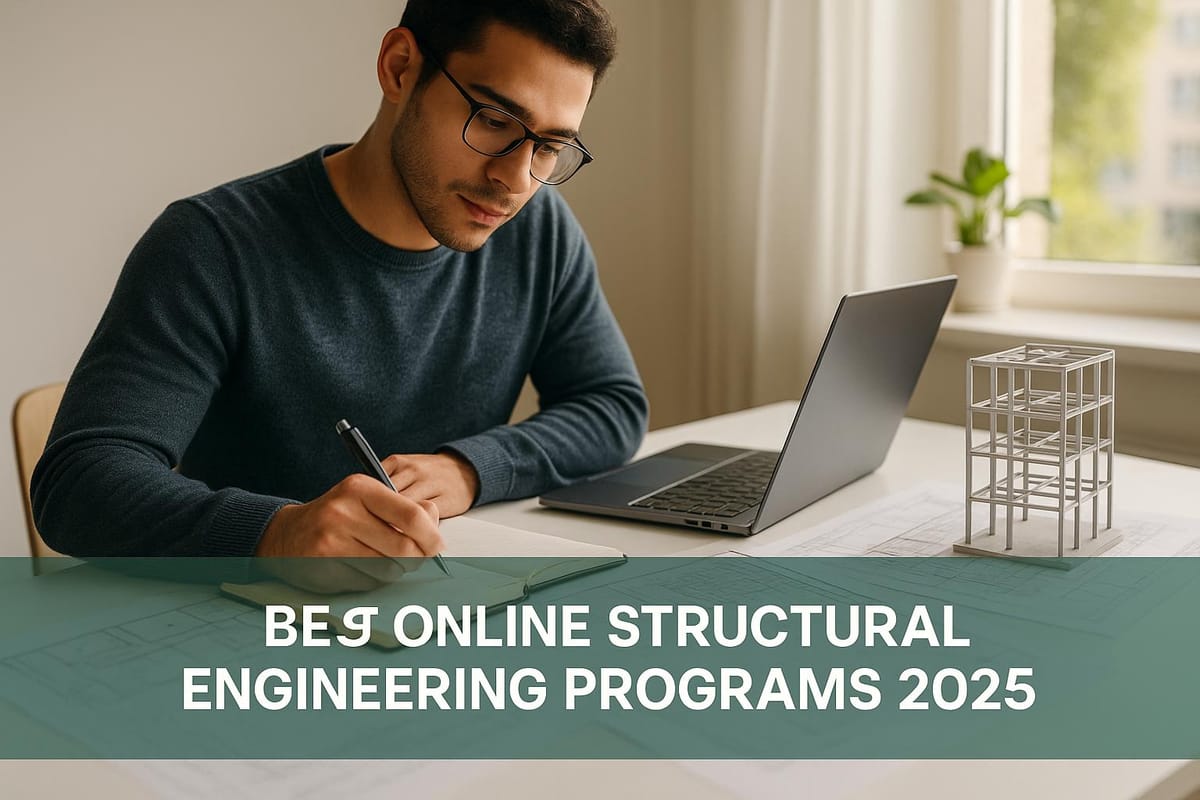
If you're considering advancing your career in structural engineering, online programs offer flexible and respected pathways. Here's what you need to know:
- Top Programs: Leading options include Purdue University, University of Michigan, University of Texas at Austin, Arizona State University, and more.
- Key Features: Programs differ in duration, tuition, delivery format, and career support. Most offer flexible schedules and focus on critical topics like structural analysis, concrete design, and materials science.
- Costs: Tuition ranges widely - Purdue and UT Austin offer competitive rates for in-state students, while programs like ASU maintain flat rates for all online learners.
- Career Outcomes: Graduates typically secure roles in structural engineering, construction management, or niche fields like seismic design, with salaries often exceeding $95,000 annually.
Quick Comparison:
| University | Degree/Certificate | Duration | Cost (USD) | Delivery Format | Core Topics |
|---|---|---|---|---|---|
| Purdue University | MS in Civil Engineering (Structural Specialization) | 2-4 years | $12,000-$15,000/year | Asynchronous online | Advanced Structural Analysis, FEA |
| University of Michigan | MSE in Civil Engineering (Structural & Materials) | 1.5-5 years | $26,336 (in-state)/$51,200 | Hybrid online with labs | Structural Dynamics, Steel Design |
| University of Texas at Austin | MS in Structural Engineering | 2-5 years | $11,998 (in-state)/$21,476 | Fully online with virtual labs | Steel Structures, Prestressed Concrete |
| Arizona State University | Online Civil Engineering Degrees | 4 years (BS), 2 years (MS) | $561/credit hour | Fully online | Structural Analysis, Engineering Materials |
These programs cater to professionals balancing work and study, offering respected credentials in a growing field. Choose based on your budget, career goals, and preferred learning format.
Master Study in Structural Engineering in Online
1. Purdue University - MS in Civil Engineering (Structural Engineering Specialization)
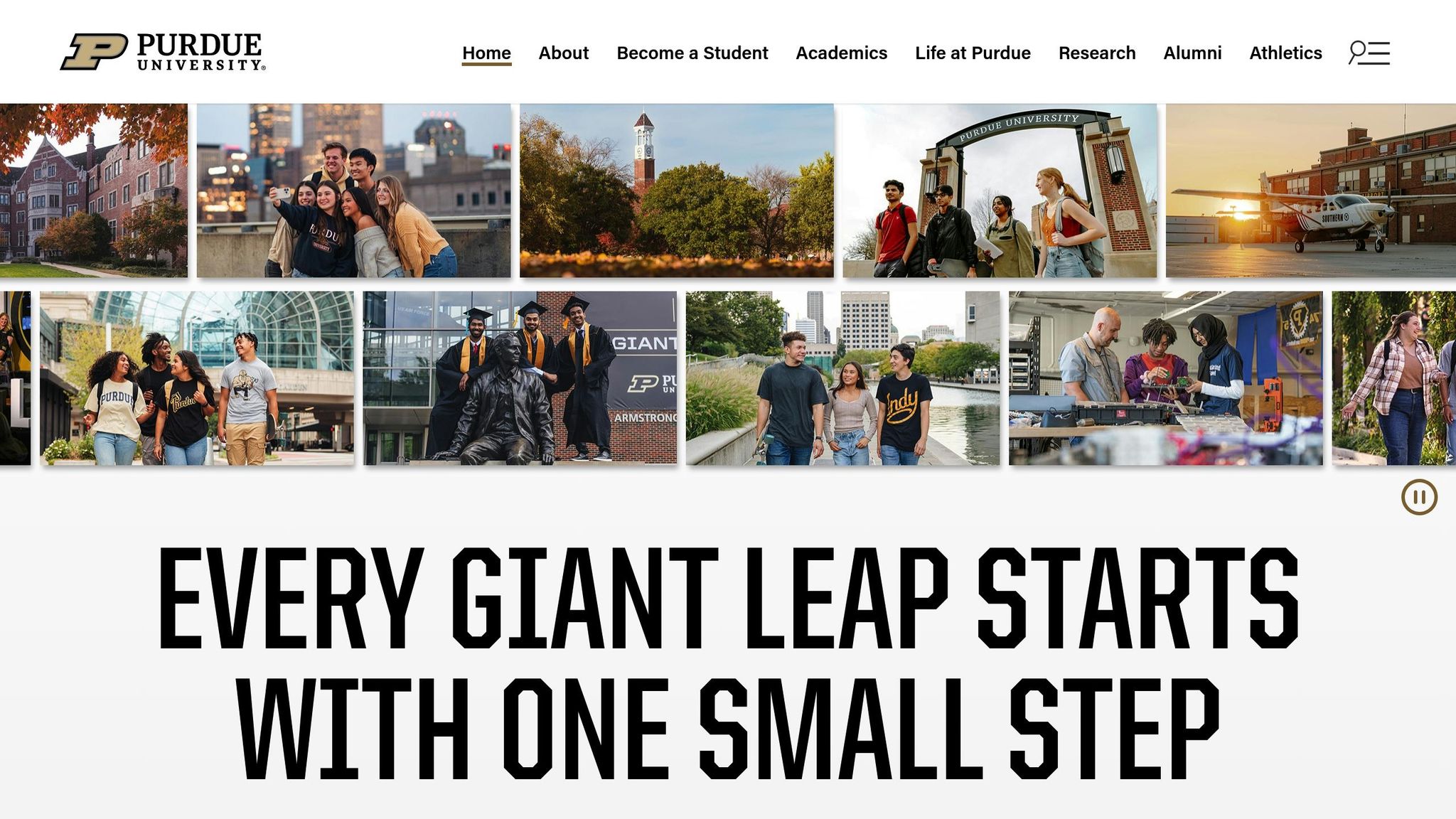
Purdue University offers an online Master of Science in Civil Engineering program tailored for working professionals. Designed with flexibility in mind, it features an asynchronous format, letting students access lectures and assignments at their convenience. The program spans 30 credit hours.
Full-time students can complete the program in as little as 12–18 months by taking at least 8 credits per term. For part-time students, the timeline typically ranges from 2 to 4 years, with most finishing in about 3 years. The program also provides the option to take up to two consecutive semesters off without needing to reapply. Additionally, it includes a non-thesis track, focusing on practical application.
Next, let’s take a closer look at the University of Michigan’s program.
2. University of Michigan – Ann Arbor - MSE in Civil Engineering (Structural & Materials)
The University of Michigan's Master of Science in Engineering (MSE) in Civil Engineering, with a focus on structural and materials engineering, combines a strong theoretical foundation with hands-on design approaches.
Accreditation and Institutional Prestige
The University of Michigan–Ann Arbor is widely recognized as one of the top engineering schools in the United States. According to U.S. News & World Report, the College of Engineering ranks #11 nationally, with its Civil Engineering program securing the #5 spot. While the ABET accreditation applies to its undergraduate programs, the same high standards carry through to its graduate offerings, ensuring rigorous academic quality.
Comprehensive Structural Engineering Curriculum
The program builds on the university's strong reputation with a curriculum tailored to address both structural and materials engineering. Students gain a deep understanding of critical engineering principles while developing practical skills to solve real-world challenges in construction and design. This blend of theory and application prepares graduates to excel in a rapidly evolving industry.
Program Structure and Flexibility
The MSE program consists of 26 credit hours, which include eight courses and two seminars. Full-time students can complete the degree in just two semesters, making it an intensive yet efficient option. For undergraduates, the Sequential Undergraduate/Graduate Studies (SUGS) pathway offers a streamlined way to earn both bachelor's and master's degrees in five years. Additionally, the program allows for some flexibility, accepting up to six transfer credits from external graduate coursework, with a total of 15 transfer credits permitted.
Costs and Financial Support
As a public university, Michigan offers competitive tuition rates for in-state students. Many graduate students in the program secure research or teaching assistantships, which often cover tuition and provide a monthly stipend. The program's shorter duration also helps reduce overall costs, including living expenses and the financial impact of delaying full-time employment.
Up next, we’ll take a closer look at the University of Texas at Austin and its specialized structural engineering program.
3. University of Texas at Austin - MS in Structural Engineering
The University of Texas at Austin stands out with its well-structured and specialized degree options. The Master of Science in Structural Engineering provides students with two distinct paths to tailor their academic experience:
- Thesis Option: This path includes 30 semester hours - 24 hours dedicated to coursework (usually eight courses) and 6 hours allocated for thesis research and preparation.
- Departmental Report Option: This option requires 27 semester hours of coursework, complemented by 3 hours for completing a comprehensive departmental report.
The program offers flexibility in course selection and research opportunities, enabling students to shape their studies around their career aspirations. Students typically decide between the Thesis and Departmental Report options during their first or early second semester.
4. Georgia Institute of Technology - Professional Certificates (Coursera)
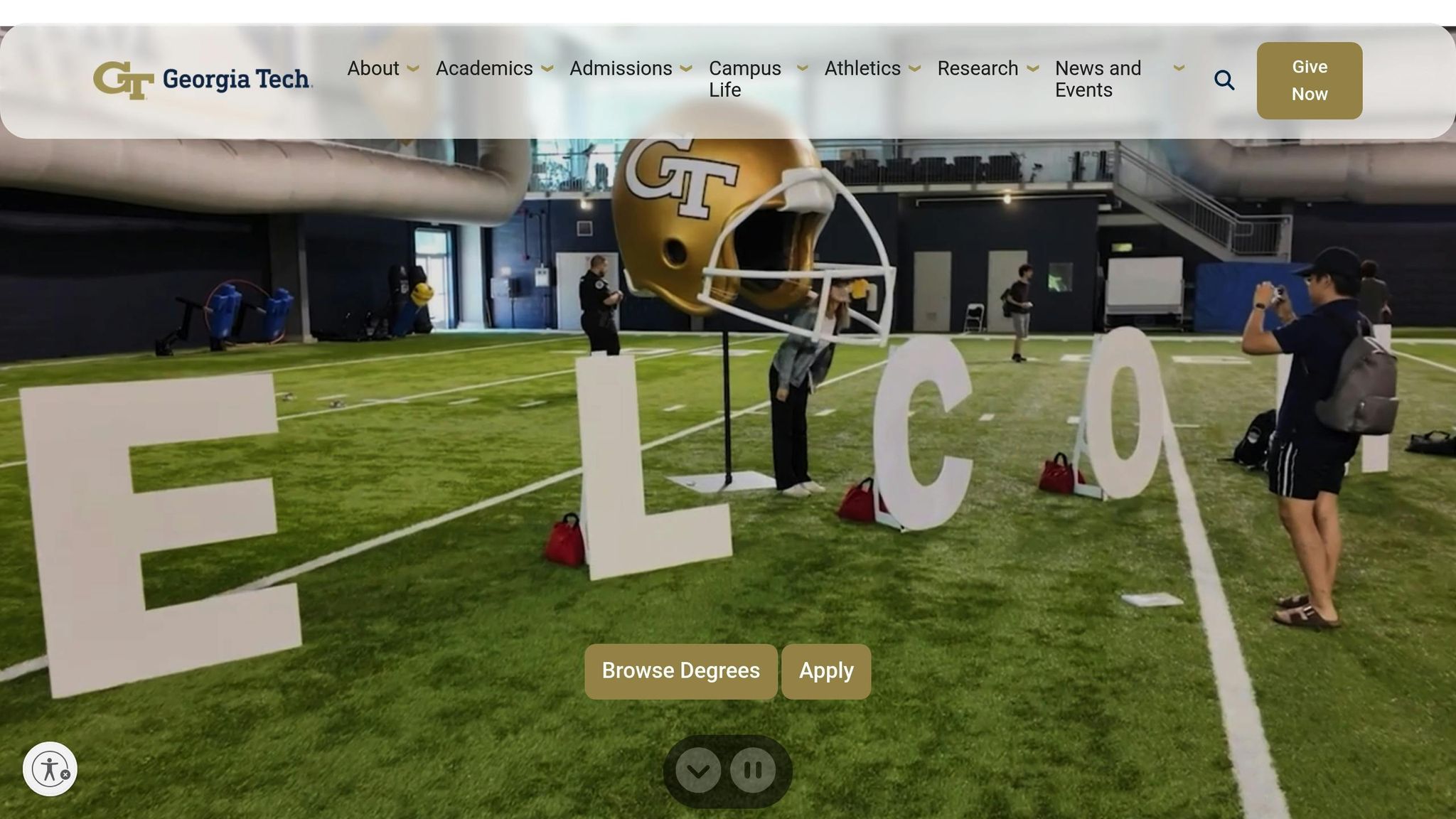
Georgia Tech has embraced the shift toward flexible online education by offering professional certificates in structural engineering through Coursera. These programs focus on delivering essential engineering skills in a shorter, more targeted format compared to a full master's degree.
Accreditation and Reputation of the Institution
Georgia Tech is consistently ranked among the top engineering schools in the United States. Accredited by reputable agencies, the institution has a strong reputation in the field. By partnering with Coursera, Georgia Tech extends its expertise to learners worldwide, and the certificates earned are well-regarded by employers in the engineering sector.
Depth of Structural Engineering Coursework
The coursework is designed to be practical and hands-on, covering key areas such as structural analysis, materials science, load calculations, and building code compliance. Students work through case studies and interactive simulations that reflect real-world challenges, gaining experience with tools commonly used in the industry.
Program Duration and Flexibility
These programs are tailored for busy professionals, offering a self-paced format that fits around other responsibilities. The online platform is user-friendly, with features like mobile access and offline viewing, making it easy to study anytime, anywhere.
Tuition Costs and Financial Aid Options
The certificates are available through Coursera's subscription model, which includes financial aid options for those who qualify. This setup ensures ongoing access to course materials without a significant financial burden.
5. National Taiwan University - Introduction to Engineering Mechanics (Coursera)
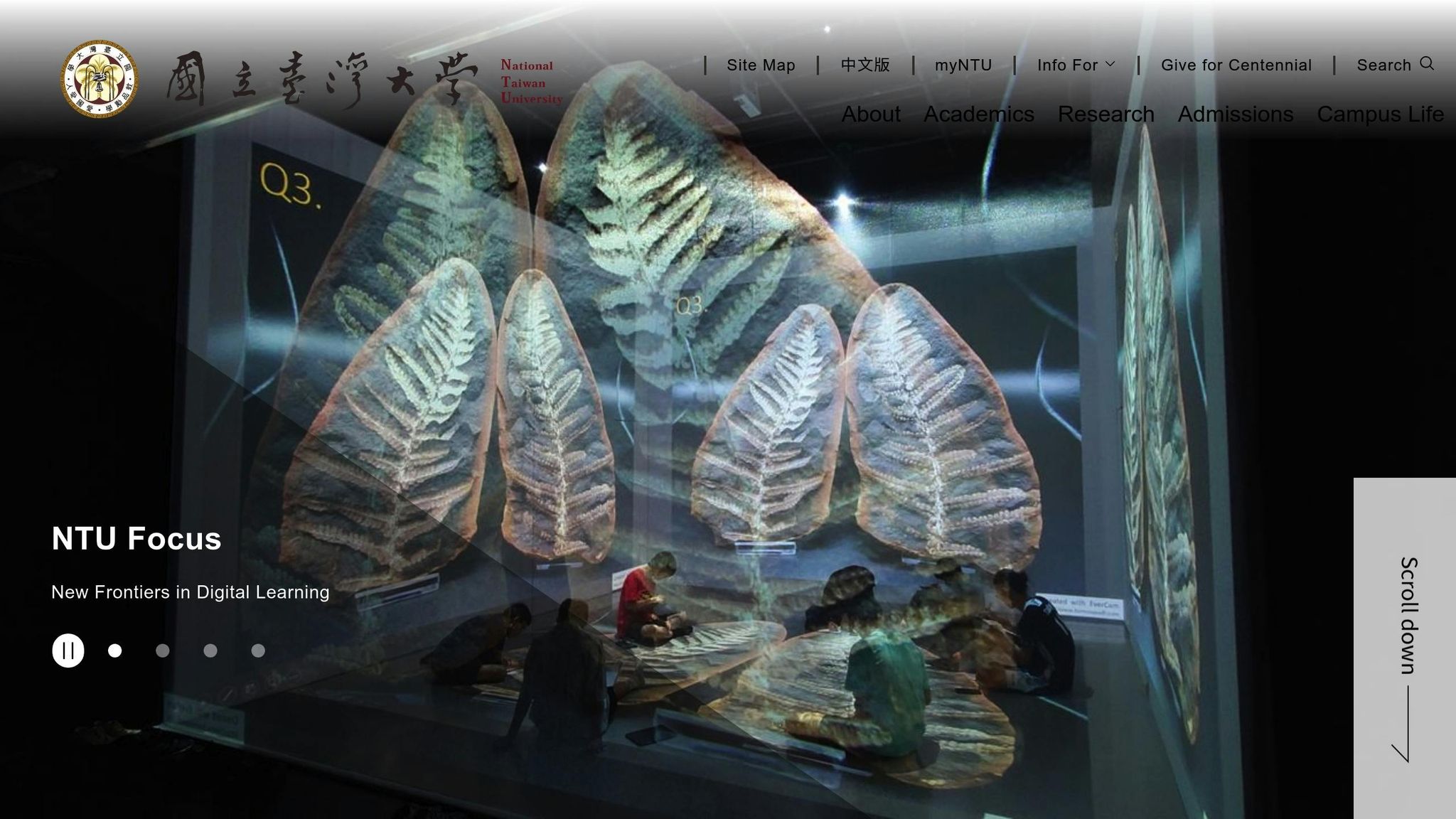
This introductory course from National Taiwan University, available on Coursera, focuses on the essential skills needed to build a strong foundation in structural engineering. It’s designed for learners looking to grasp the basic principles that underpin this field.
Accreditation and Reputation of the Institution
National Taiwan University has a long-standing reputation for excellence in engineering education. Its strong academic background ensures that this course maintains high-quality standards, offering students a reliable and well-structured learning experience.
Course Content Overview
The curriculum covers key topics like statics, dynamics, and fundamental force analysis. You’ll explore structural concepts such as tension, compression, and shear forces, alongside mathematical principles like vector mechanics and equilibrium. Practical exercises are included to help reinforce these ideas, setting the stage for more advanced studies in engineering.
Format and Flexibility
The course is designed for flexibility, making it accessible to a wide range of learners. It’s self-paced, mobile-friendly, and even offers offline access to materials, so you can study whenever and wherever it suits you.
Tuition and Financial Aid
Through Coursera’s audit option, you can access the course content for free. If you’d like to earn a verified certificate, there’s an additional fee, but financial aid is available for those who qualify.
6. Arizona State University - Online Engineering Degrees

Arizona State University (ASU) offers online civil engineering programs that incorporate essential structural engineering elements. These programs are ideal for students and working professionals who need flexibility but don’t want to compromise on academic excellence.
Accreditation and Reputation
The Ira A. Fulton Schools of Engineering at ASU is accredited by ABET (Accreditation Board for Engineering and Technology). This accreditation ensures that the online programs maintain the same high academic standards as their on-campus counterparts, making ASU a strong contender in the online engineering education landscape.
Curriculum with Structural Engineering Emphasis
The curriculum provides students with a strong foundation in structural design principles. It covers critical topics in structural engineering, equipping graduates to tackle real-world engineering challenges with confidence.
Program Duration and Flexibility
The undergraduate program requires 120 credit hours, which most students complete in about four years of full-time study. For those pursuing a master’s degree, the program involves 30 credit hours and can typically be finished in 18 to 24 months. ASU’s flexible scheduling options make it easier for students to balance their studies with work and personal commitments.
Tuition Costs and Financial Aid
For the 2024–2025 academic year, full-time online undergraduate students pay $11,822 in base tuition and fees. Total program costs range from $37,238 to $37,742. Importantly, all online students pay the same tuition rate regardless of residency. To help manage costs, ASU offers various financial aid options and flexible payment plans. Prospective students can use ASU’s online tuition estimator tool or the Net Price Calculator (for first-year domestic students) to get personalized cost estimates and explore financial aid eligibility.
Next, we’ll take a look at ECPI University Online, another excellent option for aspiring engineers with an interest in structural expertise.
7. ECPI University Online - BS in Mechanical Engineering Technology (Structural Focus)
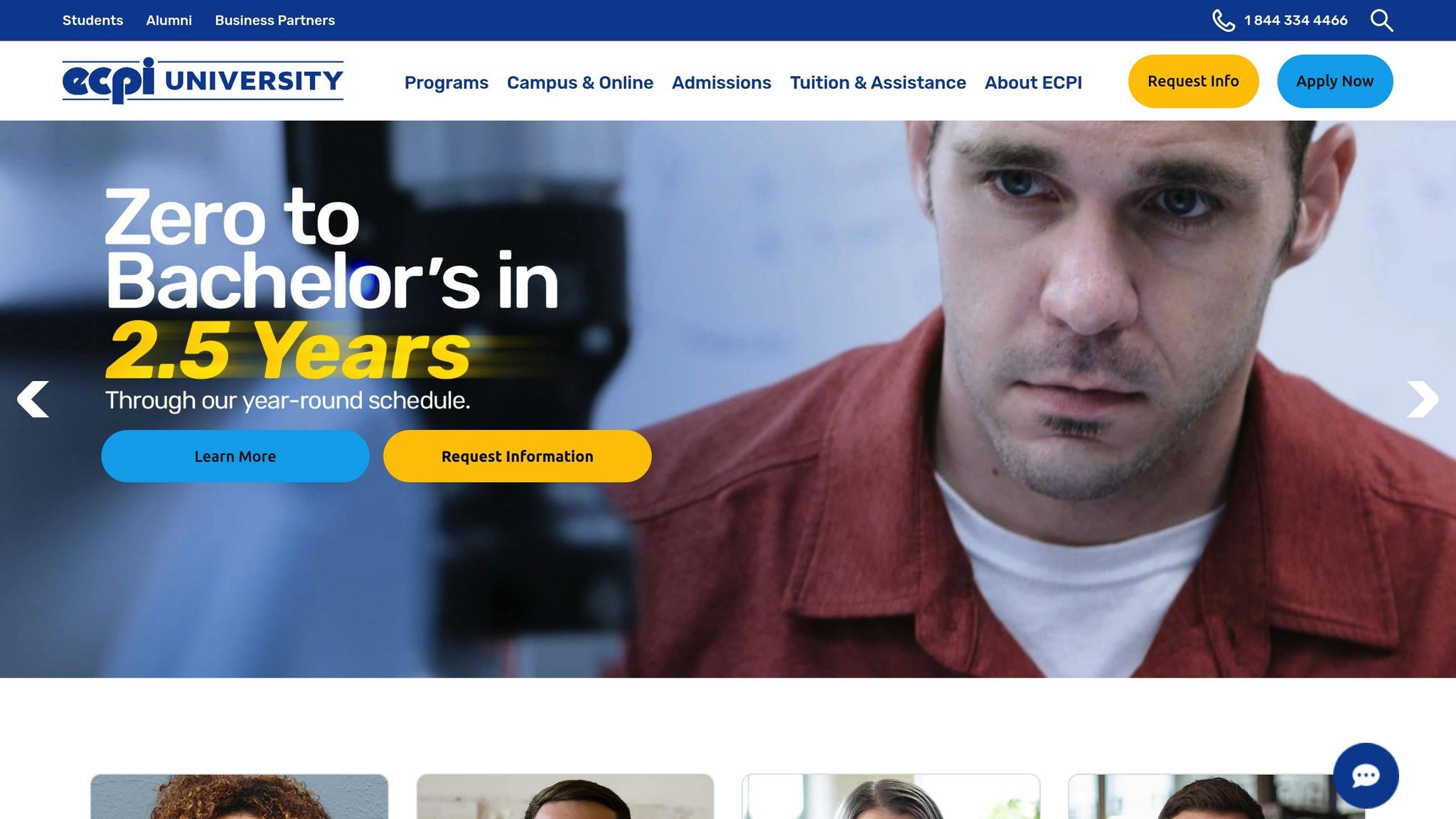
ECPI University Online provides a Bachelor of Science in Mechanical Engineering Technology, emphasizing structural applications. This program is tailored for working professionals and students who value a tech-oriented, hands-on approach.
Accreditation and Institutional Reputation
ECPI University Online holds regional accreditation, ensuring its programs meet established academic standards. Prospective students are encouraged to confirm the latest accreditation details and any employer partnerships directly with the university.
Curriculum Overview
This program blends fundamental mechanical engineering principles with an introduction to structural applications. Coursework includes topics like materials science, statics, and dynamics, all supported by practical labs and simulation-based learning.
Program Flexibility and Duration
Designed with flexibility in mind, the program features an online format and multiple start dates. This setup allows students to manage their studies alongside work or personal responsibilities.
Tuition and Financial Aid
Tuition costs vary depending on individual circumstances. ECPI University Online provides various financial aid options, such as federal aid, scholarships, and flexible payment plans. For the most accurate details on tuition, financial aid, and payment plans, it’s best to contact the university directly.
Next, we’ll explore Florida International University’s online civil engineering programs, which provide another route for those interested in structural engineering careers.
8. Florida International University - Online Civil Engineering Programs
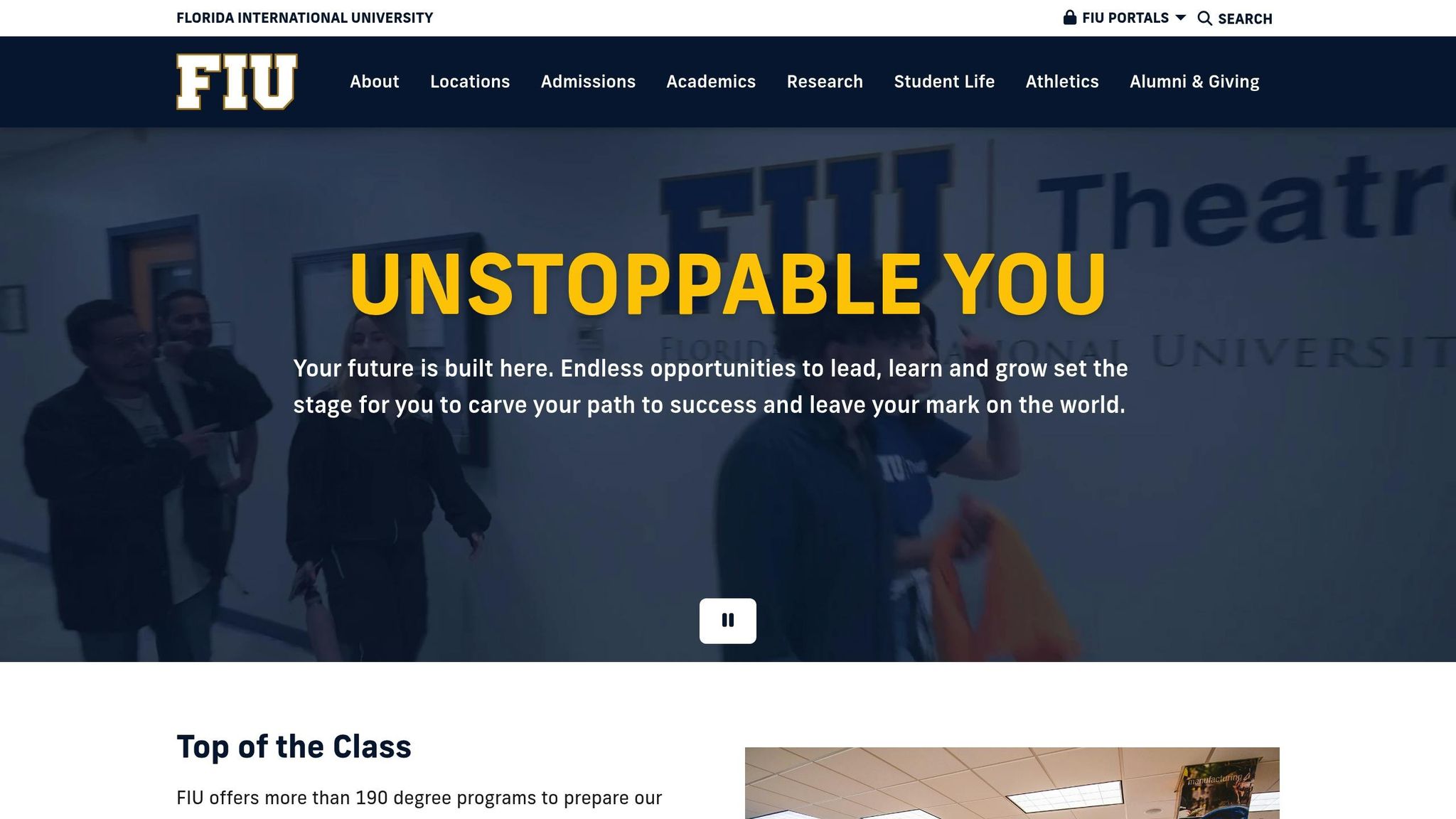
Florida International University (FIU) offers online civil engineering programs that are just as rigorous as their on-campus counterparts. With accreditation from SACSCOC and ABET, FIU ensures its programs meet high academic standards, while focusing on a diverse and inclusive student experience. The university is particularly well-regarded in South Florida and beyond for its dedication to serving Hispanic students. In fact, FIU ranks among the top public universities in the U.S. for awarding engineering degrees to Hispanic students, showcasing its commitment to an inclusive approach to education.
Comprehensive Structural Engineering Coursework
FIU's online civil engineering programs feature a robust focus on structural engineering. Students tackle essential courses like structural analysis, reinforced concrete design, and steel structure design, gaining both theoretical knowledge and practical skills. These core subjects provide a solid foundation for addressing complex engineering problems.
For those looking to deepen their expertise, advanced topics such as seismic design, wind load analysis, and structural dynamics are also part of the curriculum. Specialized electives, including bridge design and advanced structural systems, further expand learning opportunities. The program integrates industry-standard software tools, ensuring graduates are equipped with the technical skills needed for professional success.
Flexible Program Structure
FIU’s online format is designed with flexibility in mind, making it ideal for students juggling work or family obligations. Full-time students typically complete the Bachelor of Science in Civil Engineering in four years, while part-time options are available for those who need more time.
The program offers multiple start dates throughout the year, giving students the freedom to begin their studies when it suits them best. With asynchronous online delivery, lectures, assignments, and materials are accessible at any time, making it a practical choice for working professionals.
Tuition and Financial Aid Opportunities
For the 2024–2025 academic year, tuition for FIU's online civil engineering program is approximately $326 per credit hour for Florida residents and $618 per credit hour for out-of-state students. With 120 credit hours required for graduation, total tuition costs range from around $39,120 for in-state students to $74,160 for out-of-state students.
FIU offers a variety of financial aid options, including federal grants, loans, and work-study programs. Merit-based scholarships specifically for engineering students are also available, with awards ranging from $1,000 to $5,000 per academic year. The university's financial aid office works closely with online students to ensure they have the same access to funding as those on campus.
Additionally, flexible payment plans allow students to spread tuition costs over manageable installments, making the program more accessible for those who may not be able to pay the full amount upfront.
Next, explore the program comparison table for more details.
Program Comparison Table
Review the table below for a detailed breakdown of key program features to help guide your decision-making process.
| University | Degree/Certificate | Duration | Cost (USD) | Delivery Format | Core Courses | Career Support |
|---|---|---|---|---|---|---|
| Purdue University | MS in Civil Engineering (Structural Specialization) | 2 years full-time, 3-4 years part-time | $12,000-$15,000 per year | Synchronous and asynchronous online | Advanced Structural Analysis, Finite Element Methods, Earthquake Engineering | Alumni network, career counseling, industry partnerships |
| University of Michigan – Ann Arbor | MSE in Civil Engineering (Structural & Materials) | 1.5-2 years full-time, 3-5 years part-time | $26,336 per year (in-state), $51,200 (out-of-state) | Hybrid online with lab requirements | Structural Dynamics, Advanced Concrete Design, Steel Design | Career services, job placement assistance, research opportunities |
| University of Texas at Austin | MS in Structural Engineering | 2 years full-time, 4-5 years part-time | $11,998 per year (in-state), $21,476 (out-of-state) | Fully online with virtual labs | Structural Analysis, Design of Steel Structures, Prestressed Concrete | Professional development workshops, networking events, mentorship programs |
| Georgia Institute of Technology | Professional Certificates via Coursera | 3-6 months per certificate | $39-$79 per month subscription | Self-paced online | Structural Engineering Basics, CAD for Structural Design, Building Information Modeling | Coursera career services, certificate verification, peer networking |
| National Taiwan University | Introduction to Engineering Mechanics Certificate | 6-8 weeks | Free (audit), $49 for certificate | Self-paced online | Statics, Dynamics, Mechanics of Materials | Basic career guidance, course completion certificate |
| Arizona State University | Online Engineering Degrees (Multiple Options) | 4 years (BS), 1.5-2 years (MS) | $561 per credit hour | Fully online with virtual simulations | Structural Analysis, Engineering Materials, Design Principles | Dedicated online career services, industry connections, internship placement |
| ECPI University Online | BS in Mechanical Engineering Technology (Structural Focus) | 2.5-4 years | $460 per credit hour | Accelerated online format | Applied Mechanics, Structural Design Technology, Materials Testing | Career placement assistance, resume building, interview preparation |
| Florida International University | Online Civil Engineering Programs | 4 years (BS), 2 years (MS) | $326 per credit hour (in-state), $618 (out-of-state) | Asynchronous online | Structural Analysis, Reinforced Concrete Design, Steel Structure Design | Financial aid counseling, scholarship opportunities, flexible payment plans |
Key Considerations for Choosing a Program
When evaluating these programs, it’s essential to compare factors like cost, duration, delivery format, and career support to find the best fit for your goals.
- Cost: Public universities such as the University of Texas at Austin (UT Austin) and Florida International University (FIU) offer competitive in-state tuition, with total costs ranging from $39,120 to $47,992 for full degrees. On the other hand, private institutions and out-of-state tuition can drive costs well above $200,000 for a complete program.
- Duration: Traditional degree programs typically take 1.5 to 4 years to complete full-time, with part-time options extending timelines by 50-100%. Accelerated programs like ECPI University’s or self-paced certificates through Coursera offer shorter completion times, though they may not provide the same depth as full degree programs.
- Delivery Format: Programs vary in their approach to online learning. Some, like UT Austin, include fully online coursework with virtual labs, while others, such as the University of Michigan, combine online study with required in-person lab components. Certificates from institutions like Georgia Tech and National Taiwan University are entirely self-paced, offering maximum flexibility.
- Career Support: Career services range widely. Established universities like Purdue and Michigan provide robust alumni networks, industry partnerships, and job placement assistance. In contrast, certificate programs often offer more basic support, such as peer networking and course completion certificates.
Understanding these differences is crucial for professionals aiming to advance their careers in structural engineering. Whether you prioritize affordability, flexibility, or comprehensive career services, there’s a program to match your needs.
How to Choose the Right Online Structural Engineering Program
Picking the right online structural engineering program can feel like a big decision, but breaking it down into key considerations can make the process more manageable. Here’s what to keep in mind:
First, think about your career goals. Are you looking for a full degree to deepen your expertise or a certificate program to sharpen specific skills? Also, take a close look at the institution’s reputation and its alumni network. A strong network can open doors to future opportunities.
Next, consider the learning format. If you prefer real-time interaction, a synchronous program might be best. But if you need flexibility due to work or other commitments, asynchronous, self-paced options could be more suitable.
Faculty expertise is another critical factor. Check out the professors’ profiles and research interests. If you’re drawn to specialized areas like seismic design or other cutting-edge topics, look for programs where the faculty actively contribute to research in those fields.
Practical learning is just as important as academic expertise. Look for programs that offer hands-on experiences, such as virtual labs or training with simulation software. Many institutions offer trial versions of their learning platforms - testing these can give you a sense of what to expect.
Accreditation is non-negotiable. Make sure the program meets industry standards and supports pathways to professional licensure.
Budget is another key consideration. Beyond tuition, factor in additional costs like technology fees or potential travel expenses for any in-person components. If you’ve completed previous coursework, check if the program allows credit transfers to save time and money.
Support services can make or break your online learning experience. Look for programs that provide strong technical support, academic advising, and career services. These resources can help you navigate challenges and stay on track.
Finally, dig into alumni outcomes. Transparent data on job placement rates, salary trends, and feedback from employers can give you a clearer picture of the program’s value. Speaking with admissions counselors or current students through virtual info sessions can also provide insights you won’t find in brochures.
Taking the time to research these factors will help ensure you choose a program that aligns with your goals and sets you up for success in structural engineering.
Career Outcomes and Job Search Resources
Graduates of online structural engineering programs often land diverse and lucrative careers. The most straightforward path is becoming a structural engineer, a role that offers a median annual salary of $95,560, according to the U.S. Bureau of Labor Statistics (as of May 2024). In cities like San Francisco, New York, and Seattle, experienced professionals in this field can earn between $120,000 and $150,000 annually.
Another appealing option is working as a construction manager, where the median yearly income reaches $108,210. These professionals oversee projects from start to finish, requiring a blend of technical expertise and leadership abilities. Project engineers typically start with salaries around $75,000, but with five to seven years of experience, they can advance to senior roles earning $100,000 or more.
For those interested in niche areas, roles such as seismic design engineers and bridge engineers are highly sought after. These positions, especially critical in regions like California prone to earthquakes, often come with salaries exceeding $110,000. With such competitive opportunities, many graduates turn to modern job search platforms to stand out.
Recent graduates and international students face unique hurdles in today’s job market. Crafting resumes optimized for Applicant Tracking Systems (ATS) and navigating visa requirements are common challenges. To tackle these issues, many are turning to advanced job search tools for support.
One standout option is Scale.jobs, a platform tailored specifically for engineering graduates. Unlike traditional job boards, Scale.jobs provides a comprehensive approach to job hunting, addressing both technical and administrative needs. Key features include:
- Human Assistant services: Virtual assistants manage the entire application process.
- ATS-optimized resumes and cover letters: Customized for each job application.
- Real-time WhatsApp updates: Proof-of-work screenshots keep the process transparent.
- Flat-fee pricing: Ranging from $199 to $1,099, with no recurring subscriptions.
- Visa support: Specialized assistance for international students on F-1, H-1B, and other visas.
Why Scale.jobs works for engineering graduates:
- Saves over 20 hours a week, freeing up time for networking and interview prep.
- Human assistants understand engineering-specific needs, including visa complexities.
- Unlimited AI-powered applications through their $19/month AI Assistant Pro plan.
- Premium packages include dedicated recruiter support.
- Refunds for unused credits ensure value for money.
The platform also offers free tools like an ATS Resume Checker, Salary Predictor, and Interview Questions Predictor, which are especially helpful for roles like structural engineering that often involve technical interviews. Networking remains a critical factor in this field, and Scale.jobs provides tools to help graduates build connections alongside their application services.
For graduates of programs like Purdue University and University of Michigan, robust alumni networks offer additional career support. However, newer online programs may lack such resources, making external platforms like Scale.jobs even more valuable. Strong career resources are essential for leveraging the technical skills gained from these programs.
The job market for structural engineers remains strong, particularly for those proficient in software tools like SAP2000, ETABS, or Revit. Graduates who combine theoretical knowledge from their studies with practical software skills often secure jobs more quickly and with higher starting salaries.
Conclusion
The analysis above highlights why these programs can lead to thriving careers in structural engineering. Selecting the right online program can help you advance professionally and tap into opportunities in a field that’s constantly evolving.
The programs featured here are designed with flexibility in mind, making them ideal for working professionals and busy students. Whether you’re considering Purdue University’s well-rounded MS program or Arizona State University’s attractive tuition rates, each option offers distinct advantages to suit various career goals and financial needs.
Look for programs that align with your career aspirations. Specialized areas like earthquake engineering, smart structures, and bridge design not only allow you to focus on niche skills but can also lead to salaries exceeding $110,000.
These programs also provide robust support systems to help students succeed, even while managing other commitments. This reflects their commitment to both academic excellence and the practical needs of professionals balancing work and study.
Take the time to evaluate your options carefully. Use tools like scale.jobs to enhance your job search with AI-driven features and human support, making your transition into the workforce smoother. Explore accreditation details, compare tuition, and connect with admissions counselors to find the program that best meets your needs. Attending virtual open houses can also give you a glimpse into the learning environment and allow you to interact with faculty.
As demand grows for experts in sustainable design and cutting-edge technologies, investing in your education now can set you up for long-term success. Whether you’re starting your career, aiming for senior roles, or shifting into specialized fields, these programs - combined with advanced job search tools - can give you a competitive advantage in the job market.
FAQs
What are the benefits of earning a structural engineering degree online compared to attending an on-campus program?
Earning a structural engineering degree online comes with several advantages that set it apart from traditional on-campus programs. One of the standout benefits is the flexibility it offers. Online learning allows you to tailor your schedule around work, family, or other obligations, making it easier to pursue your education without putting your life on hold.
Another major perk is that online programs are often more affordable. You can skip costs like commuting, housing, and various campus-related fees. Despite being online, many of these programs maintain the same level of academic rigor as their in-person counterparts, ensuring you acquire the skills and knowledge necessary for a successful career in structural engineering.
With these benefits, online structural engineering degrees provide a convenient and accessible pathway for those looking to advance in this field.
How do online structural engineering programs help graduates secure jobs?
Online structural engineering programs in 2025 are stepping up their game when it comes to helping graduates secure jobs. They offer a range of career support services, including networking events, resume and interview preparation, and connections to potential employers. This tailored assistance gives students the tools they need to stand out in a crowded job market.
For those looking for an extra edge, platforms like scale.jobs provide a hands-on approach. Their services include virtual assistants to streamline the job search process, resumes optimized for applicant tracking systems (ATS), and real-time updates via WhatsApp. By blending technology with personalized support, these tools make finding the right job much more achievable.
What should I consider when deciding between a full structural engineering degree and a professional certificate?
When weighing the choice between pursuing a full degree or earning a professional certificate in structural engineering, it’s essential to consider your career goals, available time, and budget. A bachelor’s degree in civil or structural engineering is often a must for obtaining licensure and lays the groundwork for long-term career opportunities. Meanwhile, professional certificates are shorter and more specialized, offering targeted skills like earthquake-resistant design or advanced materials without the extensive time and financial commitment of a degree.
If you’re planning to take licensure exams, such as the FE or PE, a degree is typically required. However, certificates can still play a key role - whether you’re looking to deepen your expertise post-licensure or pivot into a new area of the field. Think about how much you’re ready to invest in terms of time and money, and whether you need a broad educational foundation or specific skills to move forward in your career.




